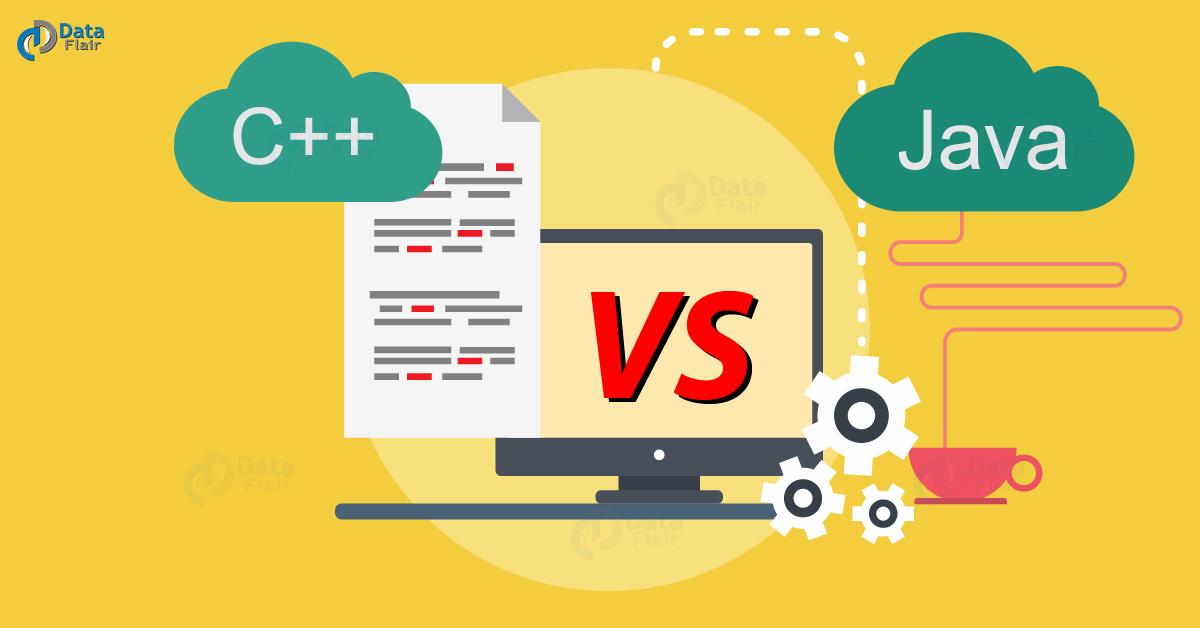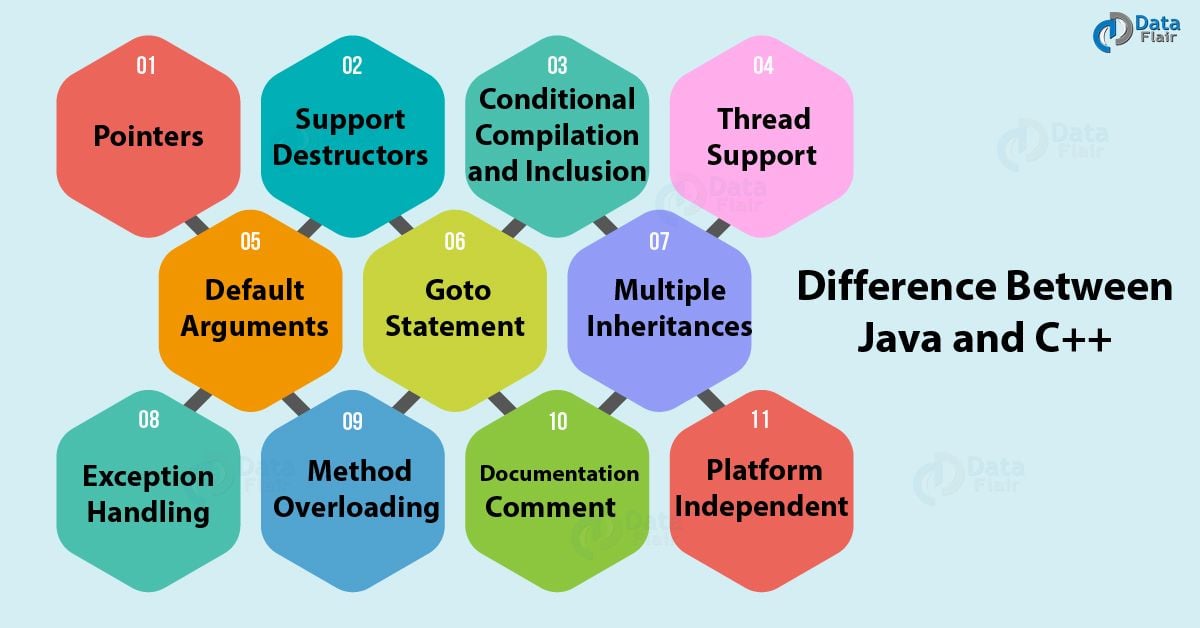Java Vs C++ | Difference between C++ and Java
Free Java courses with 37 real-time projects - Learn Java
1. Java vs C++
In our last session, we talked about Java Annotations. Now, in this Java tutorial, we are going to study Comparision between Java vs C++, which is better. Moreover, we will discuss the major factors of the differences between C++ and Java.
So, let us start Java Vs C++.
2. What is Java vs C++
Both Java Programming Language and C++ are Object-Oriented Programming languages, yet there are contrasts between them. Regardless, Java is an OOP language; accordingly, everything is a protest in Java (single root chain of command as everything gets got from java.lang.Object). Despite what might be expected, in C++ there is no such root chain of command. C++ underpins both procedural and object-oriented programming; in this way, it is known as a hybrid.
Do you know the difference between Java Extends vs Implements
3. Difference between Java and C++
Here, we are going to study 11 Important factors of comparison between Java vs C++, let’s discuss them one by one:
a. Pointers
- Java: Java does not support pointers, templates, pointer overloading, unions etc. The Java dialect promoters at first said “No pointers!”. However, when numerous developers addressed how you can function without pointers, the promoters started saying “Confined pointers.” Java underpins what it calls “references”. References act a considerable measure like pointers in C++ dialects yet you can’t perform number-crunching on pointers in Java. References have types, and they’re composed safe. These references can’t be deciphered as crude address and perilous change isn’t permitted.
- C++: C++ does support pointers, structures, unions, templates, operator overloading, and pointers arithmetic.
b. Support Destructors
- Java: Java doesn’t support destructors, it has an automatic garbage collection system.
- C++: It supports destructors, it gets invoked when an object is destroyed.
Also study Java Garbage Collection algorithms
c. Conditional Compilation and Inclusion
- Java: It doesn’t support conditional compilation and inclusion.
- C++: These are the major features of C++.
d. Thread Support
- Java: It has built-in supports threads in Java, there is thread class in Java, inherit to create a new thread override the run method.
- C++: It has no built-in supports. It depends on third-party libraries.
e. Default Arguments
- Java: Java does not support default arguments. There is no (::) in Java. The strategy definitions should dependably happen inside a class, so there is no requirement for scope determination there either.
- C++: C++ supports default arguments. C++ has scope resolution (::) which utilize to characterize a strategy outside a class and to get to a worldwide variable inside from the degree where a neighbourhood variable additionally exists with a similar name
f. Goto Statement
- Java: There is no goto statement in Java. The keywords const and goto are reserved, even though they are not used.
- C++: C++ has goto articulation. Nonetheless, it isn’t viewed as a great practice to a utilization of goto explanation.
g. Multiple Inheritances
- Java: Java doesn’t provide multiple inheritances, at least not in the same sense that C++ does.
- C++: C++ supports different inheritance. The keyword virtual utilize to determine ambiguities amid various legacy if there is any.
h. Exception Handling
- Java: Exception handling is different because there are no destructors. In Java, try/catch must define if the function declares that it may throw an exception.
- C++: While in C++, you may exclude the attempt/get regardless of whether the capacity throws an exemption.
i. Method Overloading and Operator Overloading
- Java: Java has method overloading, but no operator overloading. The String class does use the + and += operators to concatenate strings and String expressions use automatic type conversion, but that’s a special built-in case.
- C++: C++ supports both technique over-loading and administrator over-loading.
Must Read the Important difference between Method Overloading vs Overriding in Java
j. Documentation Comment
- Java: Java has built-in support for documentation comments (/** … */); therefore, Java source files can contain their own documentation, which is read by a separate tool usually java doc and reformat into HTML. This helps keeping documentation maintained in an easy way.
- C++: C++ does not support documentation remarks.
k. Platform Independent
- Java: Java interpreted for the most part and hence platform independent.
- C++: C++ creates protest code and a similar code may not keep running on various stages
This was all about Java vs C++ Tutorial. Hope you like our explanation of Difference between C++ and Java.
4. Conclusion
In this tutorial, we learned about the basic differences in C++ and Java. In addition, we explore each factor of Java vs C++. Furthermore, if you have any query, feel free to ask in a comment section.
Related Topic- Interface in Java with Example program
If you are Happy with DataFlair, do not forget to make us happy with your positive feedback on Google




C++11 introduced threading in c++, so yes: c++ supports threads.